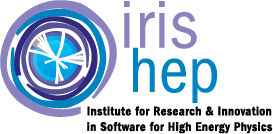PyHEP 2019 Workshop
→
Europe/London
Abingdon, U.K.
Abingdon, U.K.
The Cosener's House
Abingdon, U.K.
,
Description
The PyHEP workshops are a series of workshops initiated and supported by the HEP Software Foundation (HSF) with the aim to provide an environment to discuss and promote the usage of Python in the HEP community at large. Further information is given here.
PyHEP 2019 will be held at The Cosener's House, in Abingdon, near Oxford, United Kingdom, from 16-18 October 2019.
The workshop will be a forum for the participants and the community at large to discuss developments of Python packages and tools, exchange experiences, and steer where the community needs and wants to go. There will be ample time for discussion.
The agenda will be composed of plenary sessions, a highlight of which is the following:
1) A keynote presentation on the PyViz - open source visualization tools for Python - project, given by Philipp Rudiger, a member of the developers team.
1) A keynote presentation on the PyViz - open source visualization tools for Python - project, given by Philipp Rudiger, a member of the developers team.
2) Topical sessions on e.g. histogramming and statistics, including a talk and a hands-on tutorial.
3) Lightning talks from participants.
4) Presentations following up from topics discussed at PyHEP 2018.
3) Lightning talks from participants.
4) Presentations following up from topics discussed at PyHEP 2018.
Partial travel support for some U.S. participants (in particular, students and early-career postdocs) may be available from the IRIS-HEP institute. Please contact Peter Elmer (Peter.Elmer@cern.ch) to enquire about details.
Organising Committee
Eduardo Rodrigues - University of Cincinnati (Chair)
Ben Krikler - University of Bristol (Co-chair)
Sponsors
The event is kindly sponsored by
Contact us
Participants



